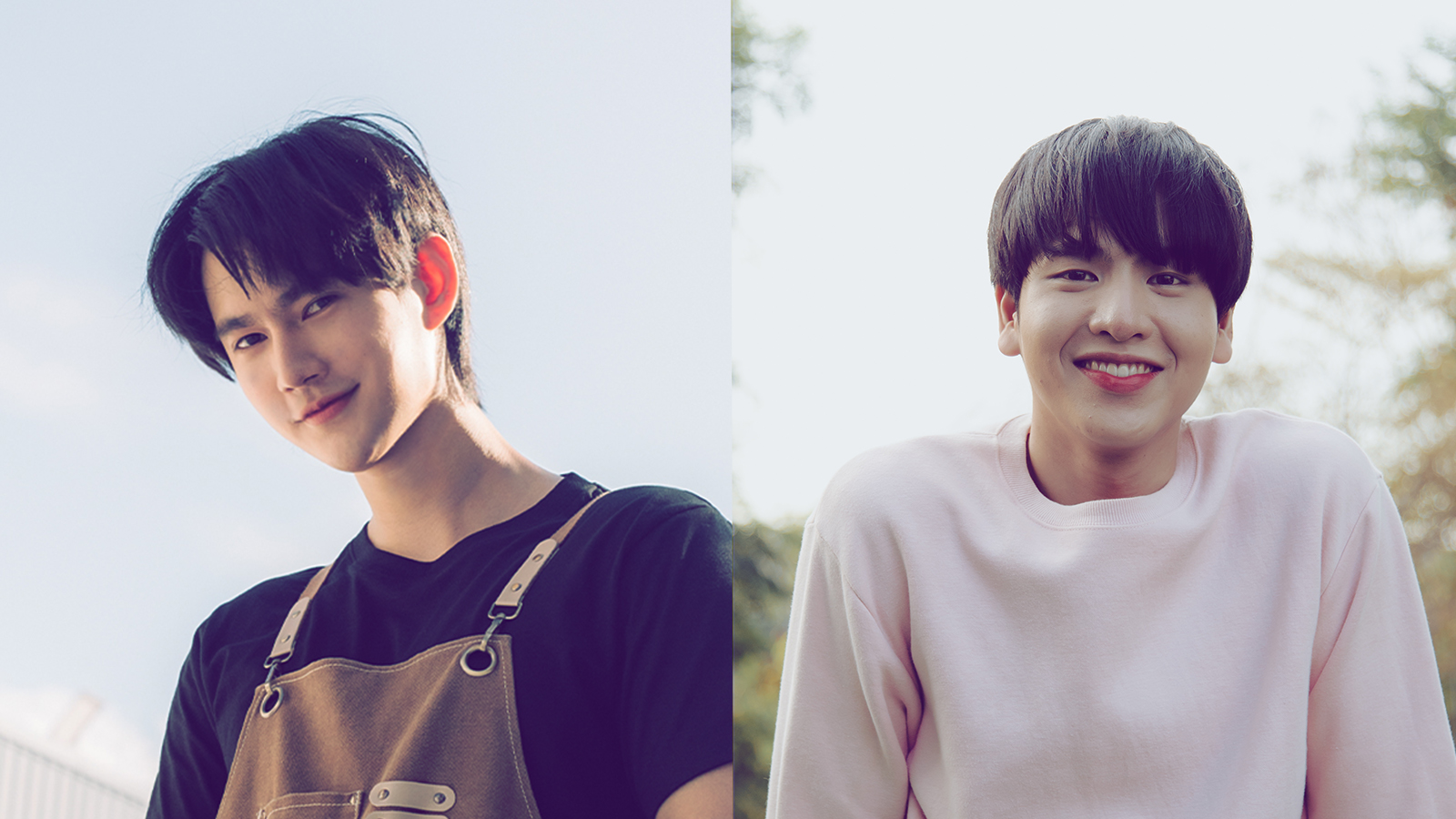Over the past years, love stories depicted in literature and movies have almost become boring clichés. Boy meets girl, they fall in love, they live happily ever after (or some variation of this). But what if boy meets boy and they fall in love, don’t they deserve to be happy, too? Yes, they do! Hey, welcome to 2022 when, after the global health crisis struck, we presumably have embraced everything unexpected, and hopefully even the unforeseen turn of typical love stories, including the Boys’ Love phenomenon.
The boys’ love genre (or simply BL) has become increasingly popular and has rapidly become a global phenomenon. This genre, which originated from a Japanese manga, anime, and video games series, depicts the amorous love of two male characters, usually in a sexually candid form. The increasing interest of young enthusiasts in masculine homoerotic storylines inspired the formation of large fan base, mostly in Asian countries including the Philippines. BL, a fast- becoming staple in literary genre, depicts the romance between male characters, and is commonly described in Japan as “yaoi.”
Evolving from a simple fanfic material made by its female fan base in Japan, these homoerotic fictions originally showcased platonic relationships between male characters in the form of parodies. It took 9 years before this kind of manga was approved for publishing due to its explicit themes such as drug abuse, homophobia, and violence. One known root of boys’ love is possibly the magazine June in 1978, one of the first magazines to publish a male-on-male tanbi literature. Later, yaoi manga expanded exponentially—from a mere fan group to mainstream media via anime. Since then, Japan has produced yaoi media through various platforms.
In BL, there are two essential ‘roles’: the “seme” –the more dominant type, and the “uke”–the receptive, submissive one, both usually portrayed by slim young people, in the verge of self-discovery, who are willing to portray and get the message across that hetero-normative gender roles are obviously somehow accepted. The formula of this hit series has always been the same: two ‘straight guys,’ who are in the stage of self-exploration and self-discovery, meet and fall in love. The characters in the series do not exactly identify themselves as members of the LGBT+ or queer community. They may or may not distinguish themselves as homosexuals yet discover that they tend to get attracted to the other male characters, regardless of gender.
But what keeps Asians and other foreign fans hooked on these BL series are the good-looking male characters, and its glorification of pure love and vibrant relationships that aren’t constrained by gender or social norms. Of course, we are almost in the post-pandemic era where things do not shock us anymore, so does this even still surprise us?
LGBTQIA+ representation
BL is not necessarily synonymous to “gay genre”; it is its own unique category. The original concept of yaoi was primarily created by women for women (mostly in their early teens), although it has also attracted a smaller following of LGBT consumers. This series banks on the kilig factor (giddiness) and good-looking, straight-acting male celebrities thus, despite the representation of male/male relationships, BL follows some standard tropes which, may not necessarily be similar with actual real-life gay experiences.
Stories that revolve around the romantic love between two men have always been popular not only in Japan, where BL originated, but likewise in Asian countries, including the Philippines. BL is touted to be borderline R-rated romantic stories widespread across Asia, specifically in Thailand where it continues to amass a huge fan base through live-action labels (way before the Philippines produced its own BL series during the onset of the pandemic in 2020), and where this OG series was given a more wholesome, feel-good tweak.
When it comes to the LGBTQIA+ image in the entertainment, one of the key issues that queer films and TV series don’t seem to get right is the actors playing the roles. Queer representation is crucial and should always be done properly. Admittedly, gay characters have always been relegated as mere sidekick for the hetero macho heroes, perhaps because of the stereotype comedic personality that they exude thus, their actions and dialogues always elicit laughter from the audience. This image, however, has been changed over time, because the LGBTQIA+ community are beyond the basic laughingstock which they have been always cast as.
The Thai BL boom
In recent years, BL fiction has been more visible across Asia as Thai studios successfully modified BL novels into TV series, including coming-of-age films like the wildly popular Love of Siam, legendary SOTUS, Love Sick series, Dark Blue Kiss, Theory of Love, Accidental Love (a.k.a. Love By Chance), TharnType, and 2gether. They have also incorporated BL subplots into non-BL specific shows such as Slam Dance, Senior Secret Love: Puppy Honey, and My Dear Loser: The Edge of 17.
At the height of the series of global lockdown in 2020, the Thai BL series 2gether from has become a massive hit in the Philippines as thousands of Filipino fans were glued to YouTube every weekend, as soon as new episodes were up. Pinoys quarantined at the safety of their own homes either opted for K-dramas and these Thai BL series, in search of more exciting concepts and content, amidst the otherwise dreary Covid-19 circumstances.
Aside from good-looking actors with outstanding play-acting skills, Thailand’s BL series is considered a new and novel concept, compared to the usual dull and uninteresting love story series we have been exposed to. It has become popular to international viewers because the genre is fresh and thought-provoking, and its conflicts and obstacles are unique. It is also noteworthy how characters do not usually resort to cheating or revenge thus, and it always has a happy ending. This is a winning point considering most drama series are sad, and people nowadays are given alternative drama like the BL series that are refreshing to watch, eliciting the much-needed feel-good feeling, given the dreary circumstances.
Moving to the forefront of the mainstream media, while triumphantly breaking the glass ceiling and putting the trope of top-bottom concept in the back burner, BL has successfully showcased unlabeled male-on-male connection in a light, candid way. It’s like seeing two handsome males having fun and no one questions their sexuality, as simplistic as that. It proves that love is love, and you can love anybody regardless of gender—whether innocently or deeply—without fear that people around you will start to go berserk, or that the world will turn upside down.
Connections over coffee
A new Thai BL run, expected to also have a solid following, is the 10-episode series called Coffee Melody, which was successfully launched a week ago. Its trailer reveals the story about the famous composer Duean Yi (played by Benz Panupun Vongjorn), whose newest project is to compose a love song. However, he struggles to write it as he has lost the passion for it. Inspiration strikes immediately when he meets handsome barista Plengrak (played by Pavel Naret Promphaopun).

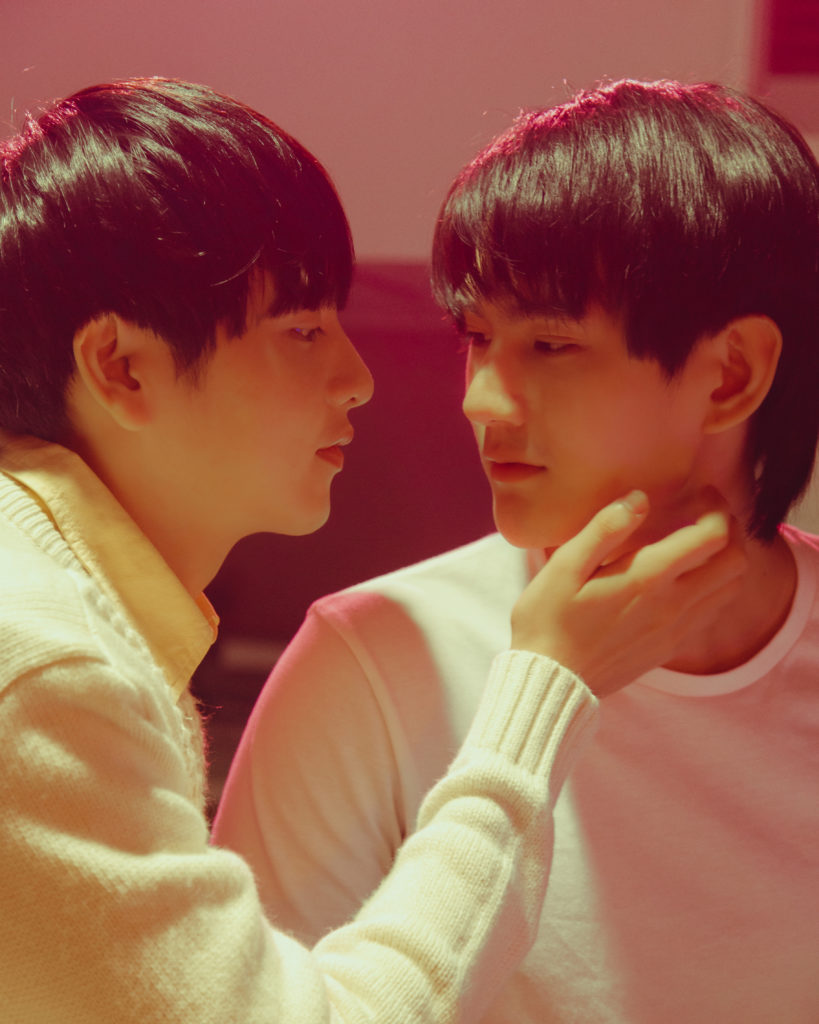
Pavel Phoom first entered into the BL industry when he decided to respond to a casting call for a new television series named 2moons2. “They were casting the second season of the show, but due to the popularity of its first season, I did not have high hopes of being selected. The competition was fierce with over a thousand applicants applying for the roles. However, I managed to stand out and got offered a place on the new cast,” the 25-year-old Thai actor revealed. Now, there is no turning back as Pavel is now hogging the limelight.
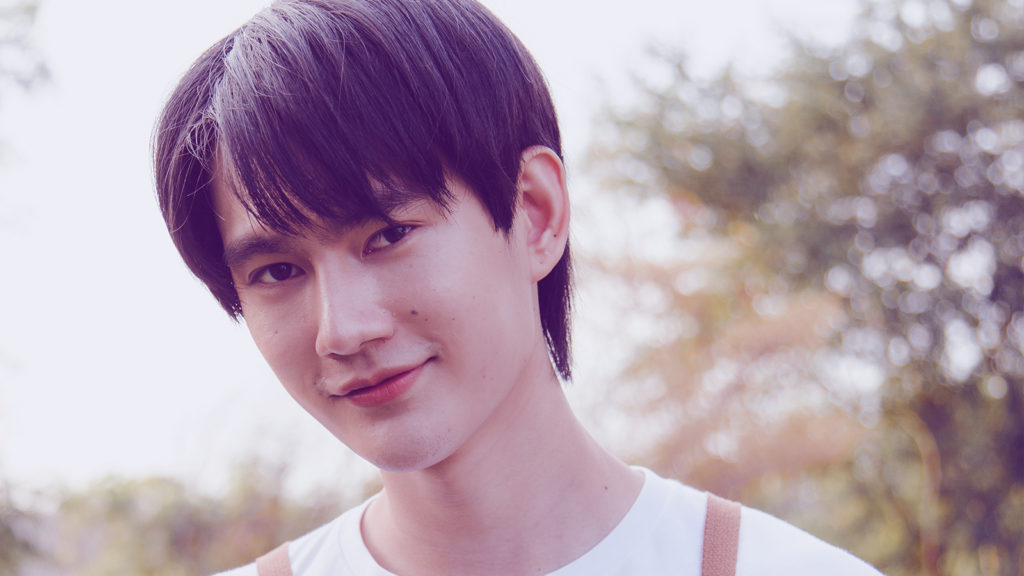
To prepare for his barista role in Coffee Melody, Pavel went to workshops and trainings to learn about coffee-making and coffee art, and also researched similar roles to get some inspiration. However, he confessed that he found Plengrak’s character a bit challenging because of the charming barista prince persona, versus his real-life bold personality; but he soon warmed up to the role.
“A lot of scenes were quite special. I loved all the coffee-making scenes because of the fun, and I could play with all the props,” he laughed. “I also like the scenes with Benz, who is Duan Yi in the new series. We helped each during the challenging drama parts, which took a lot of concentration, so our scenes together were pretty memorable,” Pavel added. He also mused that, since he loves sports cars and motorcycles, he would love to try doing action roles someday. Pavel, who recently visited the country, shared this about Filipinos: “Filipino fans are quite the most welcoming ever! Every time I attend events there, they are always hyping me, and I always have a lot of fun visiting,” he smiled.
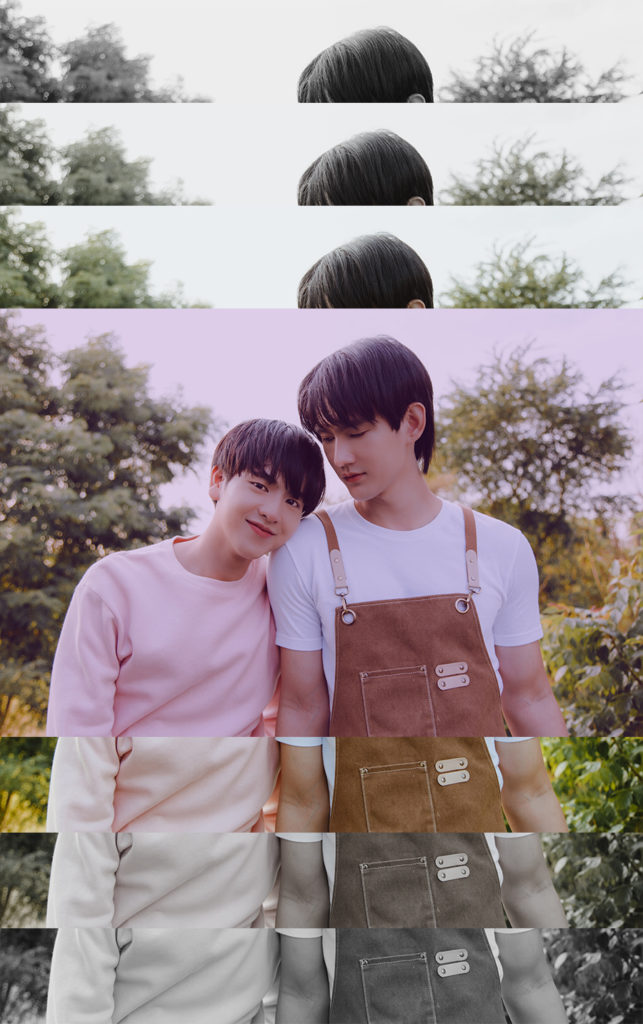
Panupun (or Benz to his friends) plays a song writer who was tasked to compose a song, but his passion has faded away. To get inspiration, he decides to chill at a coffee shop, where he met Pleng Luk, and the roller-coaster-ride of their story started there. He revealed that he already knew Pavel before Coffee Melody as they have met in several casting calls. “All casts were given workshops to make us more familiar and establish the chemistry needed in the series. And as for me, I have to learn about musical instruments because I play the piano in the series, so I need to learn and practice,” the 25-year-old actor, whose fascination for acting prodded him to audition for the TV series, expressed.
Unlike Pavel, Benz revealed that his character in the series is close to his heart, and there were no adjustments necessary. His favorite moments from filming Coffee Melody include off-cam scenes when he felt tired and how energetic Pavel would do something funny to boost his energy. “But I think because of the cute moments of the characters which are acceptable are the ones that will touch the audiences’ heart,” Benz, who has his own restaurant business, shared. Benz divulged that he wishes to work with Baifern Pimchanok, a Thai actress that he really admires and for his dream role is to be a part of a horror/slasher movie.
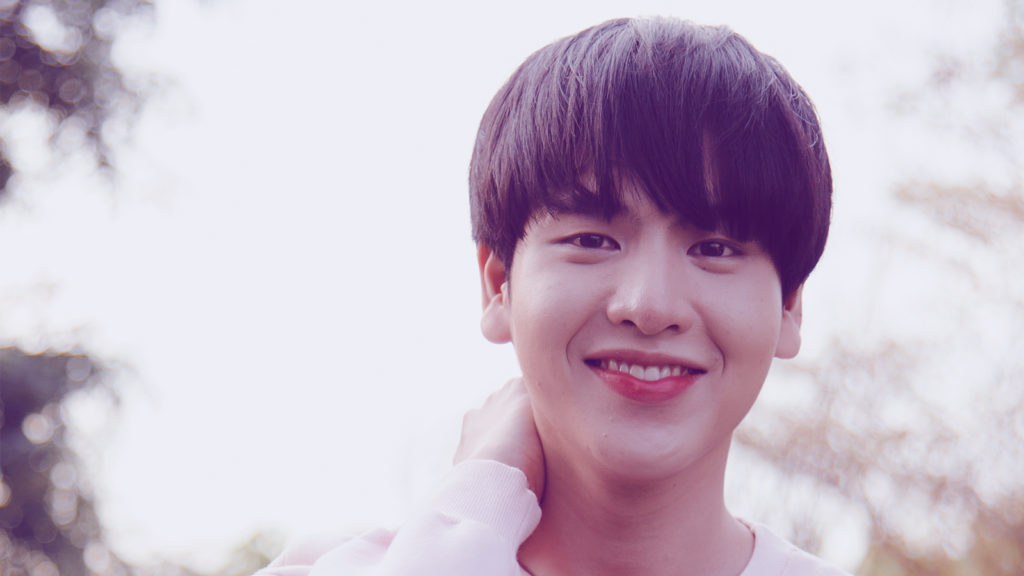
Transformation and acceptance
Benz agrees how the Thai BL series have changed the audience’s perspective about relegating queer actors to the sidelines. “I want to emphasize about the right and equality of every LGBTQIA+ member, because sometimes they are used to represent a funny character. I think LGBTQIA+ is now more accepted worldwide since the BL/GL contents are prevalent in today’s entertainment industry,” he said.
Thai BL series has received rave reviews and has been the trending topic in the past few years, and rightfully so because it has opened the doors for queer actors (who play roles as queer, or as themselves). Finally, they are no longer restricted to playing the comedic roles. They have now been properly represented because queer people in the BL series are not only shown as funny characters in media, but are depicted as human beings, capable of loving, hurting, crying, and real people who also have insatiable “longing for belonging”.
What sets the Thai BL apart is the fact that it has been comfortably positioned as having the most uncomplicated storyline, injecting a story conflict without compromising quality representation. It is about a roster of characters that do not annoy or provoke anyone within the gender spectrum. It is an all-encompassing plot that embraces the coming-of-age and other struggles of everyone in the queer community—young and old—and, in return, loving and understanding especially those on the verge of coming out and those who are in the process of discovering and embracing their sexuality.
Thai BL series became a hit because it also lets the young market delve into their own sexuality, male or female fans alike who, at the stage of self-discovery, would almost hear themselves, at the end of each episode, whispering: “Seriously? Same! Me too…omg!” and feel that they are like every normal soul-searching individual who have found their “safe space”, and have fitted in, perfectly…finally.
Coffee Melody streams on Viki for selected regions.
Other POP! stories you might like:
Representation matters: Barbie unveils first doll with hearing aids
The “A” in LGBTQIA+: Understanding asexuality and aromanticism from the aroaces
A quick dive into the history of the LGBTQIA+ community in the Philippines

